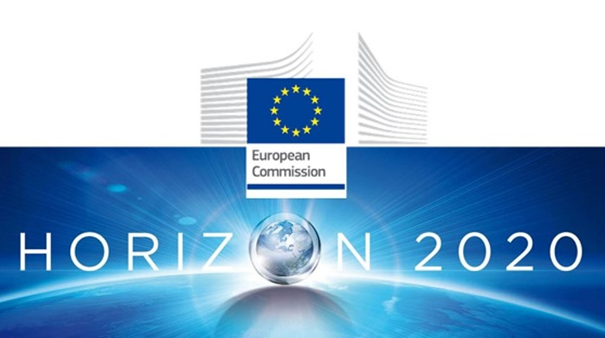AMO starts five new European projects
In January 2021, AMO GmbH has launched five new projects funded by the European Commission through the Horizon 2020 Research and Innovation Programme. Their acronyms are Aeolus, MISEL, Graced, GreEnergy and 2Exciting, and their topics range from neuromorphic computing, to energy harvesting, to innovative photonic components for air-sensing and food-quality monitoring.
The goal of MISEL is to develop a bio-inspired vision system with much smaller size, weight and power consumption than off-the-shelf components, and yet able to implement advanced recognition tasks such as distinguishing drones from birds. One of the key ingredients of the system are intensity-adaptive photodetectors, which will be developed by AMO’s Graphene Electronic group in collaboration with the group of Prof. Daniel Neumeier at the University of Wuppertal – an excellent opportunity of consolidating a long-term partnership.

GreEnergy is an extremely ambitious project in the field of renewable energies: it aims at establishing a new paradigm for harvesting solar energy based on wideband optical antennae – an approach that can achieve much higher efficiency that conventional photovoltaic solar cells. The goal of GreEnergy is to realize demonstrators with an overall efficiency of 20-40% – roughly an order of magnitude improvement with respect to current technologies. AMO plays a major role in the project, contributing both to the development and integration of the antennas and at the level of system engineering. For this second task, AMO has joined forces with Dr. AviGinzburg, an experienced system engineer and senior lecturer at Technion, who has moved to AMO for the duration of the project. Dr. Ginzburg is also one of the initiators of the project.
2Exciting is a European Training Network under the umbrella of the Marie Curie-Sklodowska Actions. The scope of the project is to sustain the European leadership in the field of optoelectronics based on two-dimensional (2D) semiconductors by training the next generation of highly qualified researchers in the field. Within this process, 2Exciting will also substantially advance the state of the art by shedding light on the fundamental physics of light-matter interaction in 2D materials and by developing innovative optoelectronic devices such as strain-actuated optoelectronics– a topic which will be specifically pursued at AMO.
The other two newly started projects, AEOLUS and GRACED, are a good example of the breadth of possible applications of photonic technologies. In GRACED, AMO is partner of a large consortium of 14 very diverse partners – from academic institutions to food producers – that aims at developing a compact and low-cost solution for food-quality monitoring based on plasmo-photonic sensors. The goal is to realize a modular system that will allow to quickly detect contaminants in all stages of the fruits-and-vegetables industry value chain – from producer to consumer. AMO plays a central role into the project, leading the technical development of the plasmo-photonic sensor itself.
The project AEOLUS targets instead the realization of an advanced sensing system for air-quality monitoring based on cloud-connected, miniaturized multi-gas sensors able to detect 10 to 15 gases. The sensing system will be powered by deep-learning algorithms and provide many functionalities for end-users, such as real-time alerts, notifications, and the possibility of taking automatic actions. Also in this project, AMO will be responsible for the design and fabrication of the building blocks of the photonic sensing system.
“The start of a new project is always an exciting moment”, says Prof. Max Lemme, Scientific Director of AMO. “There is an ambitious objective in reach, and a long list of challenges that need to be overcome to reach that objective. All the new projects are truly interdisciplinary, cooperative efforts, which build on the complementary expertise of the consortium partners. No single research group, no single institution would be able to carry out one of these projects alone. This is the beauty of the H2020 projects: to gather skills all across Europe for generating something truly new and full of opportunities for the European economy. International cooperation is a huge reservoir of resources, and it is today more necessary than ever, to drive the recovery of Europe through and after the pandemic”.
Article provided by Federica Haupt (AMO)
